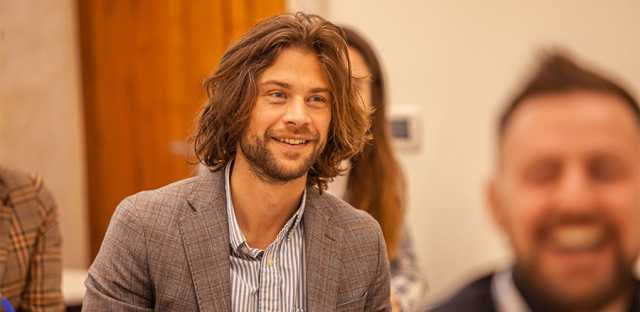
Part-time MBA
Language: Italian and English
-
Companies, employed workers, business owners, freelancers, self-employed.
Italian
For a few decades, the entire Western world has built its consumption models according to “take, make, consume and dispose.” Today this approach has become unsustainable, there are not enough resources to meet the needs of the world’s population and we no longer know how to get rid of all the waste we produce.
With the contribution of the European Social Fund, in collaboration with the European Fund for Regional Development, granted by the Region of Veneto as part of the “ResponsabilMente - Promuovere l’innovazione sociale e trasmettere l’etica - Percorsi di Responsabilità Sociale d’Impresa (DGR 948/2016)” initiative, with the Circular Economy Project – Ethical, Environmental and Industrial Sense of Product and Recycling (Code 79-1-948-2016), the CUOA Business School and the project partners aim at providing awareness and knowledge on how to “think today for a sustainable tomorrow”.
The project has four strategic goals:
- to design products so that they last longer, reducing the problem of waste and recycling from the onset and intervening in the production process to reduce energy, water and waste. To accelerate the adoption of a Circular Economy and competitive process, it becomes important to make reference to the best practices of medium-sized companies that have been able to rethink their processes and products
- to reason by business chain and not by individual company, so that there is close collaboration between companies specialising in the various phases of the production cycle, distribution, reuse and final elimination, learning how - - to communicate the value of a Circular Economy in terms of marketing
- to develop an integrated network of operators located near the places of consumption and recovery of items in order to make the retrieval of the used product and delivery of the regenerated or new product more effective and efficient
- to connect the Circular Economy to Social Innovation for an inclusive employment.

Language: Italian and English

Brand Ambassador of Made in Italy

Language: Italian

Language: Italian

Language: English - Summer Program

Language: English - Summer Program

Language: English - Summer Program

Language: English - Summer Program

Language: Italian

Language: Italian

Language: Italian

Language: Italian

Language: Italian

Language: Italian

Management for a sustainable growth

Language: Italian

Language: Italian

Language: Italian

Language: Italian

Effectively managed conflict is not only inevitable, but can also lead to greater understanding, collaboration and personal and organisational growth

Language: Italian

Language: Italian

Language: Italian

Language: Italian

Language: Italian

6 days

Language: Italian

5 days

Language: Italian

Language: Italian

Language: Italian

Language: Italian

Language: Italian

Language: Italian